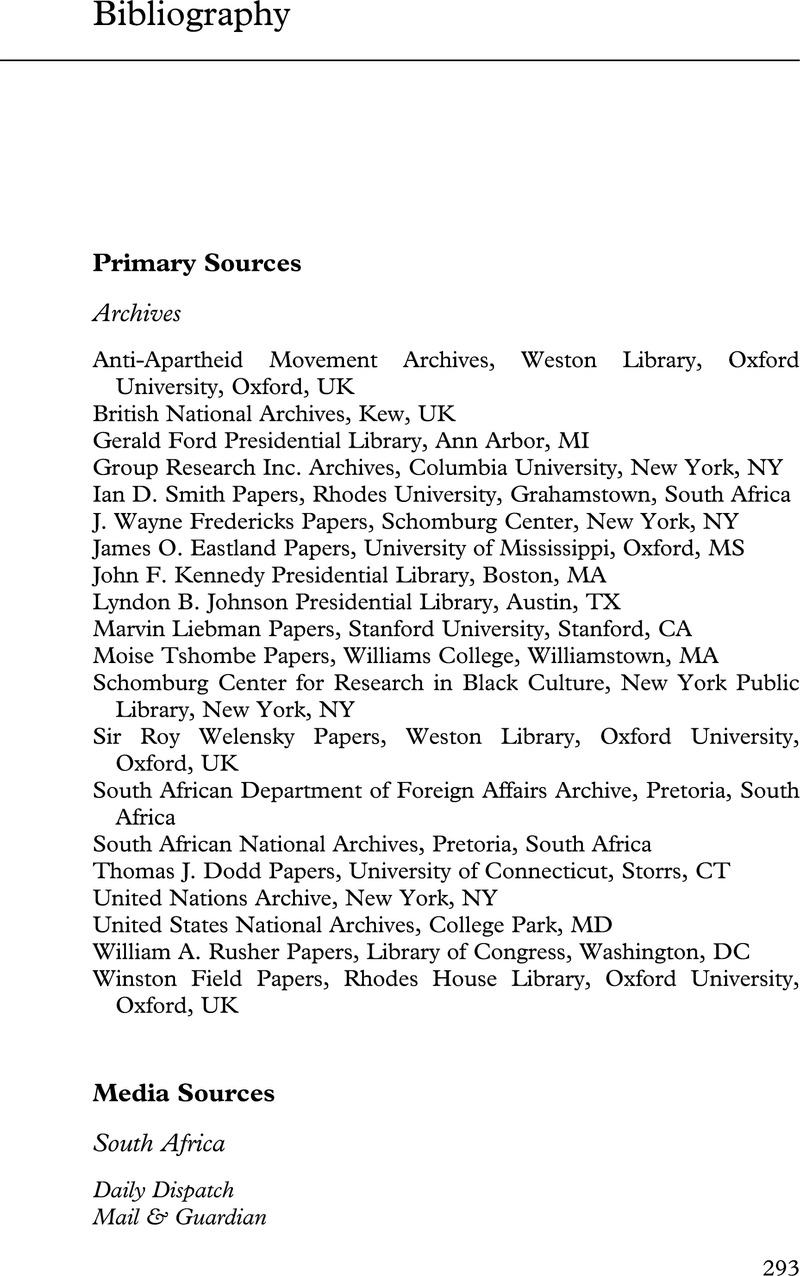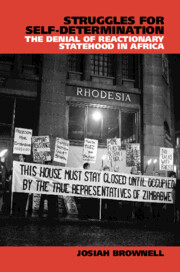Book contents
- Struggles for Self-Determination
- Struggles for Self-Determination
- Copyright page
- Dedication
- Contents
- Figures
- Maps
- Acknowledgments
- Maps
- 1 Introduction
- 2 Anti-nationalist Nationalisms
- 3 The Magical Hour of Midnight
- 4 The Quest for Recognition
- 5 Establishing Foreign Missions in America
- 6 Establishing Foreign Missions in Europe
- 7 Putting Bop on the Map
- 8 Conclusion
- Bibliography
- Index
- References
Bibliography
Published online by Cambridge University Press: 25 November 2021
- Struggles for Self-Determination
- Struggles for Self-Determination
- Copyright page
- Dedication
- Contents
- Figures
- Maps
- Acknowledgments
- Maps
- 1 Introduction
- 2 Anti-nationalist Nationalisms
- 3 The Magical Hour of Midnight
- 4 The Quest for Recognition
- 5 Establishing Foreign Missions in America
- 6 Establishing Foreign Missions in Europe
- 7 Putting Bop on the Map
- 8 Conclusion
- Bibliography
- Index
- References
Summary

- Type
- Chapter
- Information
- Struggles for Self-DeterminationThe Denial of Reactionary Statehood in Africa, pp. 293 - 305Publisher: Cambridge University PressPrint publication year: 2021



